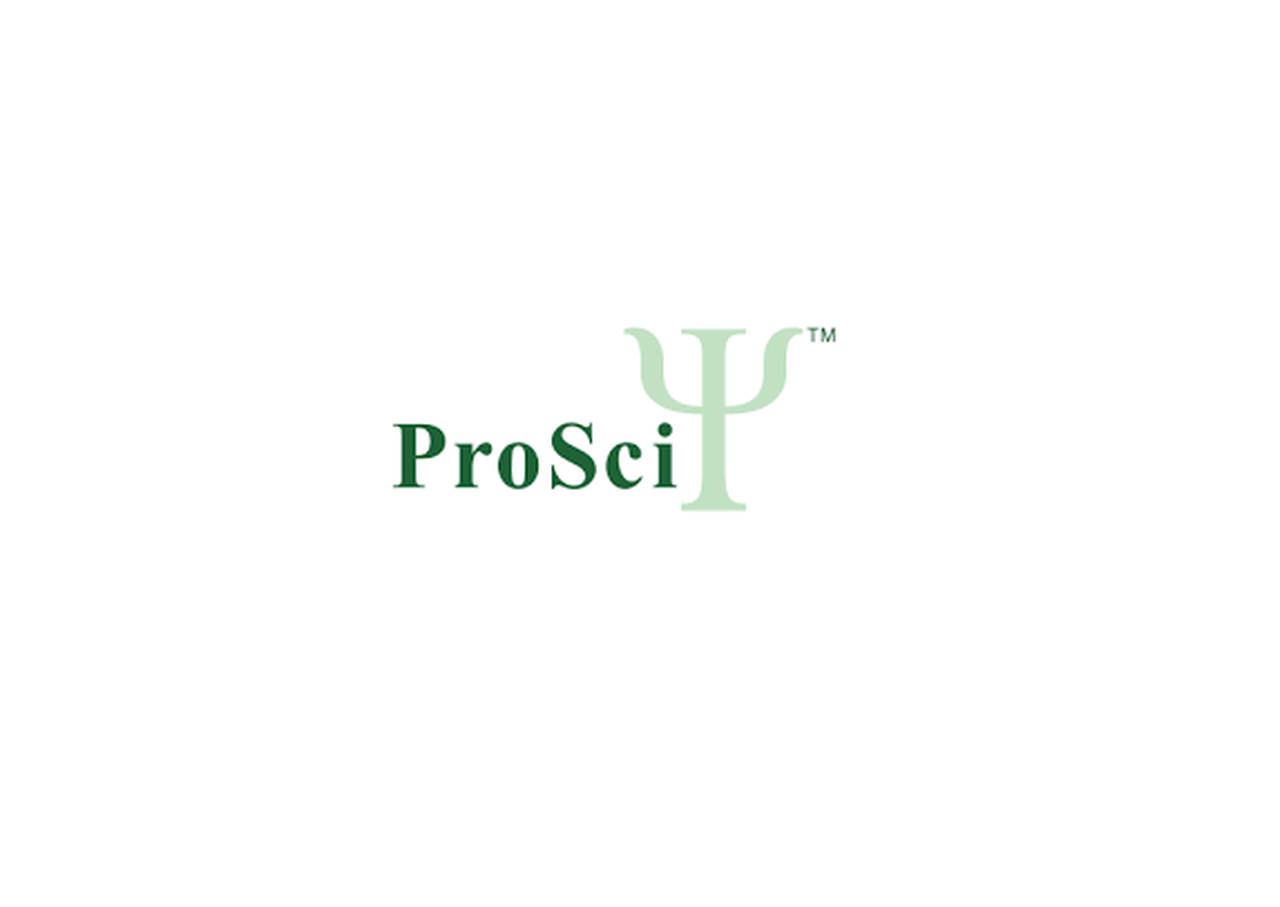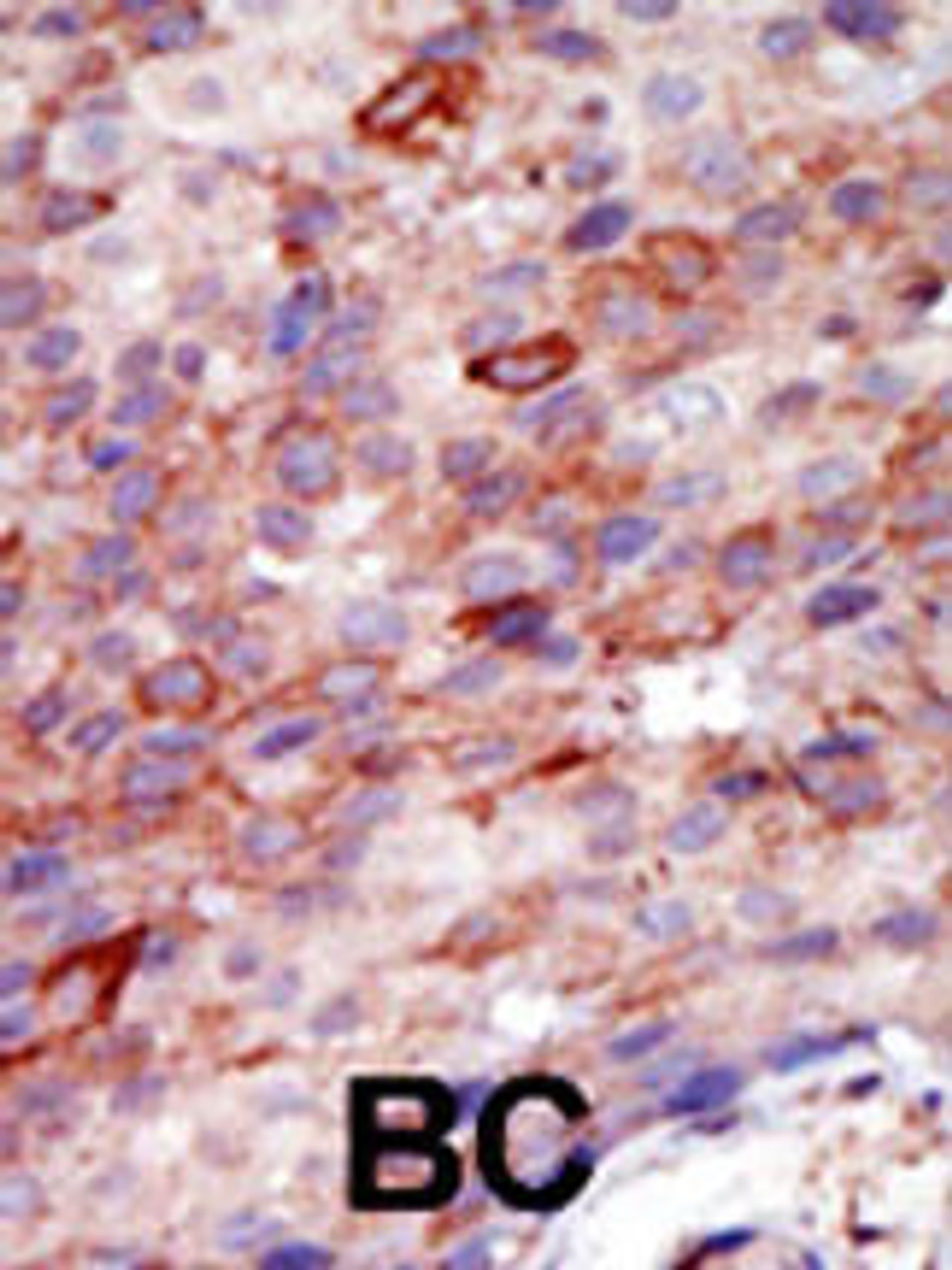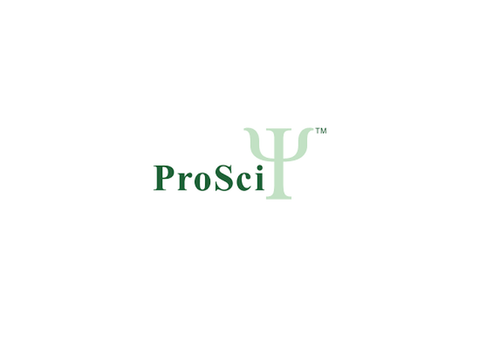Product Description
YWHAB Antibody | 63-434 | ProSci
Host: Rabbit
Reactivity: Human
Homology: Predicted species reactivity based on immunogen sequence: Bovine, Monkey, Mouse, Rat
Immunogen: This YWHAB antibody is generated from rabbits immunized with a KLH conjugated synthetic peptide between 56-85 amino acids from the N-terminal region of human YWHAB.
Research Area: Cell Cycle, Neuroscience, Signal Transduction
Tested Application: WB, IHC-P
Application: For WB starting dilution is: 1:1000
For IHC-P starting dilution is: 1:50~100
Specificiy: N/A
Positive Control 1: N/A
Positive Control 2: N/A
Positive Control 3: N/A
Positive Control 4: N/A
Positive Control 5: N/A
Positive Control 6: N/A
Molecular Weight: 28 kDa
Validation: N/A
Isoform: N/A
Purification: This antibody is prepared by Saturated Ammonium Sulfate (SAS) precipitation followed by dialysis
Clonality: Polyclonal
Clone: N/A
Isotype: Rabbit Ig
Conjugate: Unconjugated
Physical State: Liquid
Buffer: Supplied in PBS with 0.09% (W/V) sodium azide.
Concentration: batch dependent
Storage Condition: Store at 4˚C for three months and -20˚C, stable for up to one year. As with all antibodies care should be taken to avoid repeated freeze thaw cycles. Antibodies should not be exposed to prolonged high temperatures.
Alternate Name: 14-3-3 protein beta/alpha, Protein 1054, Protein kinase C inhibitor protein 1, KCIP-1, 14-3-3 protein beta/alpha, N-terminally processed, YWHAB
User Note: Optimal dilutions for each application to be determined by the researcher.
BACKGROUND: YWHAB belongs to the 14-3-3 family of proteins, members of which mediate signal transduction by binding to phosphoserine-containing proteins. This highly conserved protein family is found in both plants and mammals. The encoded protein has been shown to interact with RAF1 and CDC25 phosphatases, suggesting that it may play a role in linking mitogenic signaling and the cell cycle machinery. Two transcript variants differing in the 5' UTR, but encoding the same protein, have been identified for the gene. Both variants encode the same protein, however, they are differentially expressed in hematopoietic cells.
 Euro
Euro
 USD
USD
 British Pound
British Pound
 NULL
NULL












